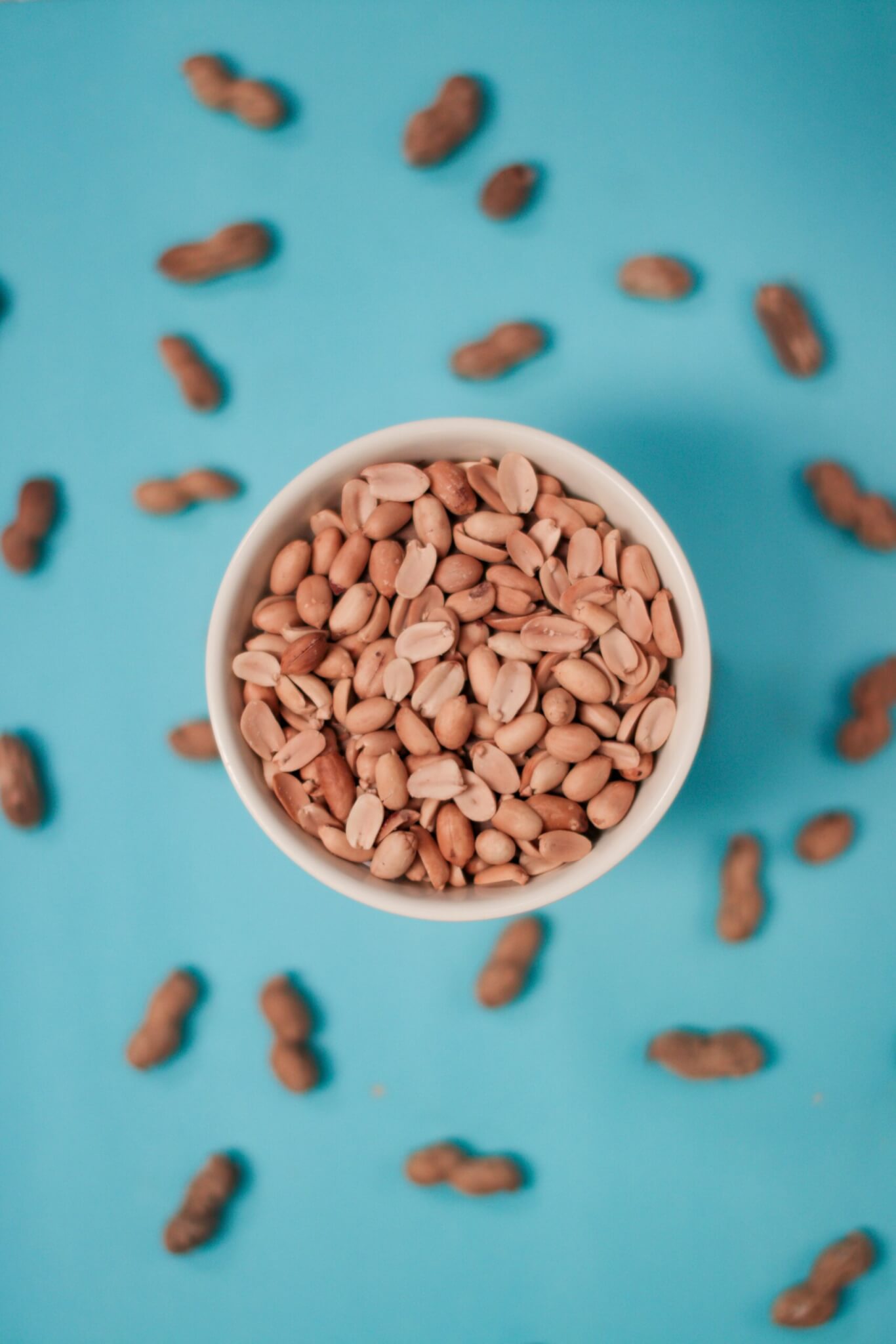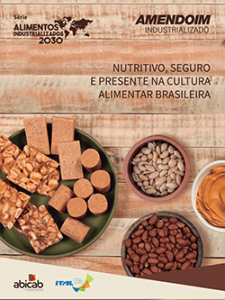INDUSTRIALIZED PEANUT NUTRITIONAL Value
There are different types of industrialized peanut products, with different ingredient compositions, which impacts on differences in nutritional composition and caloric value. Products can be added with salt, sugar, seasoning and sweet or salty toppings, can be fried or roasted, which provides more or less proteins, fibers, fats, sugars, energy value and sodium content. In the nutritional label of the 416 products studied, the nutrients of mandatory statement were identified: Proteins, Fibers (dietary fiber), Calories (energy value, kcal), Carbohydrates, Saturated fat, Trans fat and Sodium. Among the nutrients voluntarily stated, Sugars were identified, only the products that state their values in the label.
Peanut contains other nutrients in which values are not included in the label; however, they can be identified in the data of the TBCA Table, for example, those that state significant quantities of vitamins and minerals, in the grain peanut, both raw and toasted. It can be observed that the values contained in the TBCA Table are also very similar to those collected from the nutritional label products of the sample.
Generally, in a portion of 50 g, peanut in grains can supply relevant quantities of PROTEINS, FIBERS, VITAMIN E, NIACIN, VITAMIN B6, FOLATE, IRON, POTASSIUM and ZINC. It is not a food with low energy content, and it contains saturated fats; however, in quantities lower than those verified for mono- and polyunsaturated fats, being free from Trans fat. Studies have demonstrated the presence of phytochemical compounds in peanut.
PROTEINS
Industrialized peanut products contribute with significant quantities of PROTEIN for the consumers feeding and nutrition. Even though there is a great variation in quantities of proteins present in the different products, there are those with content above 10% of VDR (50 g) of mandatory statement for PROTEINS, in most of the categories of the analyzed products (Note: the information contained in the labels analyzed do not allow verifying whether proteins have the amino acids profile for the statement of protein nutritional claim).
DIETARY FIBERS
The industrialized peanut products contribute with significant quantities of DIETARY FIBERS for the consumers feeding and nutrition. Even though there is a great variation in quantities of fibers present in the different products, there are those, mainly among the bars and beverages with peanut, with content above 10% of VDR (25 g) of mandatory statement for DIETARY FIBERS, in most of the categories of the analyzed products.
As the data presented demonstrate, about the DIETARY FIBERS content of many categories of products, it is not possible to consider, GENERALLY, its higher or lower nutritional value for this nutrient.
CALORIES (ENERGY VALUE)
Generally, peanut, even in its natural state, is not a low ENERGY VALUE food, which can be observed in the GRAINS category, which range within 194 Kcal to 397 Kcal, in portions of 50 g, with or without addition of sugar and other ingredients in addition to peanut.
The quantities of calories vary significantly among the analyzed products, which can be salty or sweet, with a wide variety of raw materials used in toppings and other preparations. Even though, except oil, there are many products with ENERGY VALUE lower than 100 Kcal (portions of 15 g to 20 g).
CARBOHYDRATES AND SUGARS
Generally, industrialized peanut products can have a varied quantity of CARBOHYDRATES, depending on the types of ingredients they are mixed or prepared with, for example, toppings with flours and sugars.
Sweet peanut products usually have SUGAR in its preparation. However, there are products with reduction in the sugar content, and even “zero-sugar” candies, resulting from the increasingly trend to control the food diet.
SATURATED FAT
The analyzed products, which can be toasted, fried, with a wide variety of raw materials used in toppings and other preparations. In the total sample, 12.0% of the products presented values up to 1.5 g; 82,4% with up to 4.5 g; and 17.6% from 4,5 to 10,5 g, in portions of 50 g.
Peanut in grain contain, naturally, saturated fats, however in lower quantities to those verified in mono and polyunsaturated, being free form trans fat.
TRANS FATS
The analysis of a sample of 416 industrialized products revealed that 98.8% of them stated 0.0 g, per portion of 50 g. Only 5 products, of SWEET category, presented quantities within 0.5 g and 4.2 g of TRANS FATS (in portions of 50 g).
SODIUM
The quantities quantities of SODIUM vary significantly among the analyzed products, both for salty as sweet. In the total sample, 147 products (35.3%) presented values up to 5 mg; 223 products (53.6%) up to 40 mg, a contend considered as VERY LOW; 280 products (67.3%) up to 80 mg, a contend considered as LOW, per portions of 50 g.




